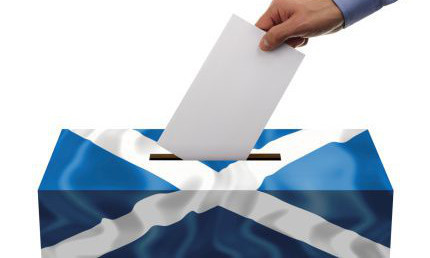
Our email jury cast their verdict on the controversial issue of chasing poll tax dodgers.
First Minister Alex Salmond has announced new laws to stop councils from pursuing people over historic poll tax debts.
The Conservatives branded his policy a “tax-dodger’s charter”, but Salmond said it was misguided for councils to use the current electoral register to chase debts from decades ago.
We asked our Email Jury if they think a debt should be pursued no matter how old it is or do they believe the poll tax was unfair and should therefore be counted as an exception?
“At the end of the day, you need to pay your taxes. It’s the law of the land. I do.” Carol Whitehead, Manchester.
“We all have to pay. Long-term dodgers declare themselves bankrupt and just keep on never intending to pay. In the end the rest of us are paying for them, which is very unfair.” Elizabeth O’Regan, Lincoln.
“Yes, the poll tax was unfair but most of us paid it. Many could pay it but refused, so the council had to cut services and a lot of people suffered because of this. Chase them and even if they get half, it will make a difference.” Jean-Claude Hutzinger, Lochgelly.
“I find it difficult to say whether such old debts should be pursued but feel those of us who did pay are getting a raw deal if others, maybe better able to pay, are getting away scot-free.” Liz Kelly, Glasgow.
“I have always paid my bills and I feel strongly about people who want everything for nothing. Presumably they enjoy street lighting and having their bins emptied. Who do they think pays for all these services?” Aileen Cormack, St Monans.
“It is a debt owed to the local authority and should be pursued through any reasonable source of information. Salmond, as always, is trying to curry favour, having been soundly defeated in his declared main aim.” Neil Bone, St Andrews.
“Decent hard-working families struggled to pay this Tory tax, so why should those who chose to avoid the tax and thumb their noses at the government be given a pardon? ” Andrew Rennie, Falkirk.
“The poll tax cannot be branded like a loan from a bank or loan company. It was a very unfair tax forced upon many poor, already vulnerable, people in a situation where they just could not afford it.” Gary Hopton, Kinglassie.
“Whether or not the poll tax was unfair, people who paid it now have to subsidise those who didn’t.” Ronald James, Kirriemuir.
“Those refusing to pay the poll tax and now complaining they are being pursued by re-registering to vote do not have a leg to stand on. If it was ‘illegal’ how about a refund for those of us who did pay while the rest freeloaded?” John Moonie, Perth.
“I feel if the referendum had been a Yes vote, Mr Salmond would probably have chased these debts. After all, the country needs as much money as it can. Either we all pay or those who have are refunded.” Dawn Nelson, Dunfermline.
“Regardless of the poll tax being unfair or not, many people paid up so why should those who did not pay get off scot-free?” John Stephen, East Kilbride.
“If they’re not going to chase the poll tax dodgers, can I get back the money I paid? Seems only fair.” Jim Strachan, Balmedie.
“Every working adult should contribute towards the services that are provided in the town they live in. Otherwise, how are they to be funded?” Alan Ross, Edinburgh.
“It’s just another one of Alex Salmond’s attempts to buy independence.” Hugh McHardy, Keith.
“It was an unfair tax as the low paid were hit the hardest and it left the rich better off.” Joseph Clancy, Glasgow.
“Thatcher’s poll tax experiment on the Scots was an outrage. I congratulate anyone who succeeded in avoiding it. Sorry about those who stumped up, but that’s life these days. Get over it.” Iain Willox, Cheltenham.

Enjoy the convenience of having The Sunday Post delivered as a digital ePaper straight to your smartphone, tablet or computer.
Subscribe for only £5.49 a month and enjoy all the benefits of the printed paper as a digital replica.
Subscribe